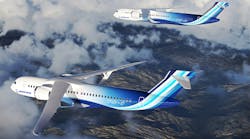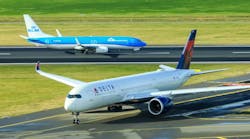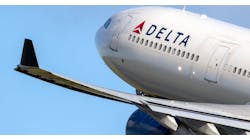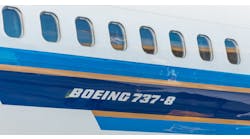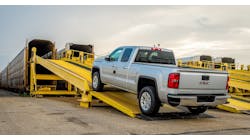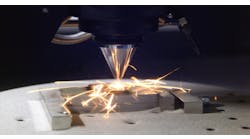A Boeing-led consortium has drawn a $425-million NASA contract to develop and test a full-scale commercial aircraft, part of the agency’s Sustainable Flight Demonstrator (SFD) program. SFD is a federal project supporting the civil aviation industry's net-zero-carbon emissions (by 2050), as well as the goals set forth in the U.S. Aviation Climate Action Plan.
The development and testing of a full-scale Transonic Truss-Braced Wing (TTBW) demonstrator is intended to inform future aircraft designs and to collect aerodynamic and fuel-efficiency data or insights.
The TTBW concept foresees a single-aisle aircraft with thin but elongated wings, with diagonal struts that connect the wings to the fuselage for stability. The demonstrator also will incorporate recent advances in propulsion systems, materials, and systems architecture, and Boeing will incorporate design elements from current aircraft, according to its announcement.
The expectation is that this design will generate less aerodynamic drag, and thus reduce fuel consumption and emissions by up to 30% versus the most efficient aircraft now in service.
The TTBW airframe is the result of developments supported by Boeing and NASA over more than a decade, including wind-tunnel testing and digital modeling.
Along with the NASA funding, Boeing and its partners will provide up to $725 million to shape the project.
Neither Boeing nor NASA indicated the other private-sector partners in the project.
"The SFD program has the potential to make a major contribution toward a sustainable future," stated Boeing chief engineer and EVP Greg Hyslop. "It represents an opportunity to design, build and fly a full-scale experimental plane, while solving novel technical problems."
